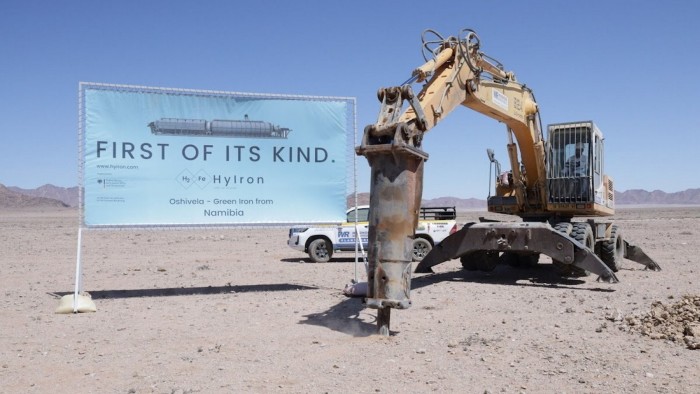Unlock the Editor’s Digest for free
Roula Khalaf, Editor of the FT, selects her favourite stories in this weekly newsletter.
The EU must use its €300bn aid programme to compete more aggressively with Russia and China for global influence, said the EU’s commissioner for international partnerships, accusing Beijing of using loans as “traps”.
The EU, which says it provided 42 per cent of the world’s overseas development aid in 2023, is trying to use aid as geopolitical muscle in a world dominated by the US and China.
The bloc should brand itself a “lifestyle superpower” that creates business and jobs in poorer countries, commissioner Jozef Sikela told the Financial Times. By contrast, he argued, Russia offered “bribes, weapons, propaganda and maybe security for dictators” and China’s approach was “about the further plundering of the countries”.
“It’s obvious that Europe has been for decades by far the biggest payer when it comes to the development agenda,” Sikela said. But it has “never been perceived as a player, as a power, in this context”.
The Czech politician was appointed last year to oversee the EU’s Global Gateway programme, which is becoming a central arm of its foreign policy. The funding scheme was first launched by Brussels in 2021 and has since mobilised a total of €306bn in aid from private and public sources, around a third of which comes from the EU’s own budget.
 Jozef Sikela rejected accusations of neocolonialism, arguing that the EU intended to keep as much value from the projects within the country as possible © Valeria Mongelli/Bloomberg
Jozef Sikela rejected accusations of neocolonialism, arguing that the EU intended to keep as much value from the projects within the country as possible © Valeria Mongelli/Bloomberg
The European Commission in July proposed roughly doubling its contributions to €200bn as part of the bloc’s next multiannual budget from 2028. Officials from around 50 governments, including 15 heads of state, travelled to Brussels this week to discuss projects and the scheme’s direction.
African countries, such as Kenya, have had to renegotiate the terms of billions of dollars of Chinese loans for projects funded by Beijing’s $1tn Belt and Road global infrastructure scheme. Sikela said countries burned by the experience were turning to the EU.
China’s foreign ministry has in the past rejected suggestions its development aid and financing sets “debt traps” for recipients, insisting projects are in line with international rules, market laws and debt sustainability. China’s embassy in Brussels did not immediately respond to a request for comment.
To counter the Chinese and Russians, the EU should turn the Global Gateway scheme from a traditional development aid programme into an “investment story” that would co-finance industrial and infrastructure projects on the ground alongside training and education, Sikela said.
The projects, which range from electricity interconnectors in the Balkans to seaweed harvesting in the Caribbean, should also provide benefits to the EU. The bloc has targeted several countries such as Angola and Namibia that are rich in commodities needed for the bloc’s green transition. In Namibia, for example, the EU has financed a zero emissions iron production plant.
Sikela rejected accusations of neocolonialism, arguing that, unlike the Chinese, the EU intended to keep as much value from the projects within the country as possible — for example, building plants to process critical minerals in the recipient country rather than shipping them to Europe.
But, he added, “we are working with the European taxpayer’s money” and “economic security, access to raw materials, more resilience for us and for our partners is very important in this agenda”.
Another priority of the programme was to tackle the root causes of irregular migration, he said. “Countries which are helping us to tackle illegal migration, they of course might get bigger support.”
“If you offer a sustainable future for people in the countries, if they have kindergartens for their kids, if they have jobs, if they have access to education, they will not risk the lives of their families in these dangerous journeys,” he said.
The EU has signed several controversial deals with Egypt and Tunisia, separate to Global Gateway, to encourage them to stop people departing from their shores to Europe.
Donald Trump’s decision to abolish flagship aid scheme USAID is an opportunity for the EU to increase its share of support, Sikela said. But, he added: “We definitely do not want to become a donor of last resort.”
Sikela acknowledged criticism over the level of red tape involved in applying for Global Gateway funds, saying the EU was “not probably the fastest continent, but we stick to our promises”. He added that one Central Asian head of state told him they preferred the EU to China because it was “predictable” and “solid”.
